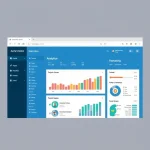Introduction to Informatics
Informatics is a rapidly evolving field that intersects with numerous domains, ranging from data science to healthcare. It encompasses the study and application of information technology, data analysis, and management principles to solve complex problems and drive innovation. The rise of big data, cloud computing, and artificial intelligence has made the understanding and application of informatics essential in today’s digital landscape. For more in-depth insights on this transformative field, you can explore https://www.informaticsview.com, a hub for the latest research and discussions.
What is Informatics?
Informatics is the science of information processing, storage, and retrieval, integrated with computer technology. It emphasizes the practical application of information systems to support decision-making and operational efficiency. Informaticians leverage computational tools to interpret, analyze, and disseminate information in various contexts—whether enhancing healthcare delivery, improving educational systems, or streamlining business operations.
The discipline can be broadly classified into subfields such as bioinformatics, health informatics, social informatics, and more, each emphasizing the unique ways information is harnessed to create value in specific domains.
Importance of Informatics in Today’s World
In our increasingly interconnected world, the importance of informatics cannot be overstated. It is the backbone of data-driven decision-making across various sectors. Businesses rely on data analytics to understand market trends and consumer behavior, whereas the healthcare industry utilizes informatics to manage patient records and improve treatment outcomes. As society generates vast amounts of data daily, informatics professionals play a pivotal role in ensuring that this data is transformed into actionable insights.
Moreover, informatics fosters innovation by enabling organizations to utilize technology efficiently. The integration of informatics into education empowers learners by personalizing educational experiences and providing educators with tools to track progress and optimize learning outcomes.
Overview of https://www.informaticsview.com
https://www.informaticsview.com serves as an essential resource for those interested in the latest trends, research, and applications in informatics. This platform provides a wealth of information, including articles, research findings, and expert opinions aimed at fostering a deeper understanding of informatics. Visitors can explore various topics, contribute to discussions, and gain insights that can enhance their knowledge and application of informatics in their respective fields.
Key Areas of Research in Informatics
Data Science and Analytics
Data science plays a critical role in informatics by combining statistics, mathematics, and computer science to analyze complex data sets. Organizations utilize data science to uncover patterns, predict trends, and make data-driven decisions. Various methodologies, such as machine learning and data mining, are employed to analyze large volumes of data and extract valuable insights.
Innovations in data visualization, predictive analytics, and real-time data processing are enhancing how businesses understand their operations and customer interactions. Additionally, ethical considerations surrounding data usage, privacy, and security are primary concerns that informatics professionals must navigate as they work with sensitive information.
Information Systems and Management
Information systems are at the heart of informatics and are essential for managing and processing organizational data. These systems encompass the hardware, software, data, procedures, and people involved in collecting, storing, and disseminating information. Informatics professionals must ensure that these systems are designed to meet the needs of users and aligned with organizational goals.
Effective implementation of information systems can lead to enhanced productivity, improved decision-making, and better communication within organizations. Key areas of focus include system architecture, database management, user interface design, and systems integration.
Health Informatics and Its Impact
Health informatics is a specialized area that combines health care with information technology. It focuses on the management and analysis of health data to improve patient care and health outcomes. Through electronic health records (EHR), telemedicine, and health information exchanges, health informatics allows for better coordination of care, enhanced patient engagement, and informed clinical decisions.
The ongoing advances in health informatics are revolutionizing how healthcare is delivered, making it more efficient and patient-centered. Moreover, health informatics plays a crucial role in public health by enabling data analysis to track disease outbreaks and inform policy decisions.
Challenges Facing Informatics Professionals
Data Privacy and Security Risks
With the increase in data collection, the need for stringent data privacy and security measures has never been more critical. Informatics professionals face numerous challenges in ensuring that sensitive information is protected from breaches and cyber-attacks. The regulations governing data privacy, like the General Data Protection Regulation (GDPR) in Europe and the Health Insurance Portability and Accountability Act (HIPAA) in the United States, impose strict requirements on how data is managed.
Organizations must adopt proactive approaches to data security, including implementing encryption, conducting regular audits, and training employees on data privacy policies. Failure to adhere to these regulations can result in significant legal ramifications and damage to an organization’s reputation.
Integration of Emerging Technologies
The rapid pace of technological innovation presents both opportunities and challenges for informatics professionals. The integration of emerging technologies, such as artificial intelligence, machine learning, and blockchain, requires ongoing education and adaptation. These technologies offer the potential to enhance analytics capabilities and automate processes, but their implementation can be complex and resource-intensive.
Additionally, there is a need for harmonization between traditional systems and new technologies, which can create compatibility challenges. Professionals must stay abreast of technological advancements to effectively incorporate them into existing structures and maximize their benefits.
Future Skills Needed in the Field
As the demand for data-driven decision-making grows, informatics professionals must possess a diverse skill set that includes technical skills, analytical abilities, and effective communication. Future skills will increasingly encompass knowledge in areas such as data ethics, artificial intelligence, and advanced analytics techniques.
Soft skills, like critical thinking, problem-solving, and adaptability, will also become essential in navigating the complexities of the field. Continuous learning and professional development will be crucial to remain competitive in this fast-changing landscape.
Best Practices for Effective Informatics
Leveraging Analytics Techniques
Organizations can elevate their informatics strategies by leveraging various analytics techniques to turn data into actionable insights. Descriptive analytics can help understand past performance, diagnostic analytics can investigate reasons for specific trends, and predictive analytics can forecast future performance based on historical data.
Best practices include establishing clear objectives for analytics projects, investing in robust analytics platforms, and ensuring data quality and accuracy. Effective collaboration among stakeholders is also vital to ensure that analytics initiatives align with organizational goals and deliver value.
Developing Robust Information Systems
A well-designed information system enhances organizational efficiency by ensuring seamless data flow and accessibility. Best practices for developing robust information systems involve thorough requirements gathering, user-centered design methodologies, and iterative development processes.
Employing agile methodologies can facilitate flexibility and adaptability during the development process, allowing teams to respond promptly to emerging needs or changes in technology. Regular system updates and maintenance also play a pivotal role in sustaining system performance and security.
Implementing Health Informatics Solutions
Health informatics solutions must be designed with the end users in mind—healthcare providers and patients alike. Successful implementation requires a deep understanding of clinical workflows, regulatory requirements, and user needs.
Implementing electronic health record systems is just one part of the equation. Ongoing training, user support, and feedback mechanisms should be established to ensure effective usage and continuous improvement. Engaging stakeholders throughout the process fosters buy-in, increases user engagement, and enhances overall system adoption.
Performance Metrics in Informatics
Evaluating Project Success
To assess the success of informatics projects, it is essential to establish clear metrics related to goals and objectives. Key performance indicators (KPIs) should encompass factors such as implementation time, user satisfaction levels, and return on investment.
Conducting thorough project evaluations can help identify areas for improvement and inform future initiatives. Additionally, using longitudinal studies to evaluate long-term impacts can provide valuable insights into the overall value of informatics interventions.
Using Analytics for Continuous Improvement
Analytics is not just a tool for decision-making; it can also drive continuous improvement within organizations. By regularly analyzing performance data, organizations can identify trends, weaknesses, and opportunities for optimization.
Implementing a culture of data-driven decision-making encourages teams to leverage analytics in their daily operations. This continuous feedback loop fosters innovation and helps organizations stay competitive in rapidly changing environments.
Gathering User Feedback Effectively
User feedback is invaluable in informatics as it provides insights into user experiences and pain points. Establishing structured feedback mechanisms, such as surveys, interviews, and focus groups, can yield actionable data for enhancing systems and services.
Organizations should prioritize responsive feedback processes that demonstrate to users that their opinions are valued and lead to tangible changes. Engaging with users helps build trust, increases user satisfaction, and drives further engagement with informatics solutions.








